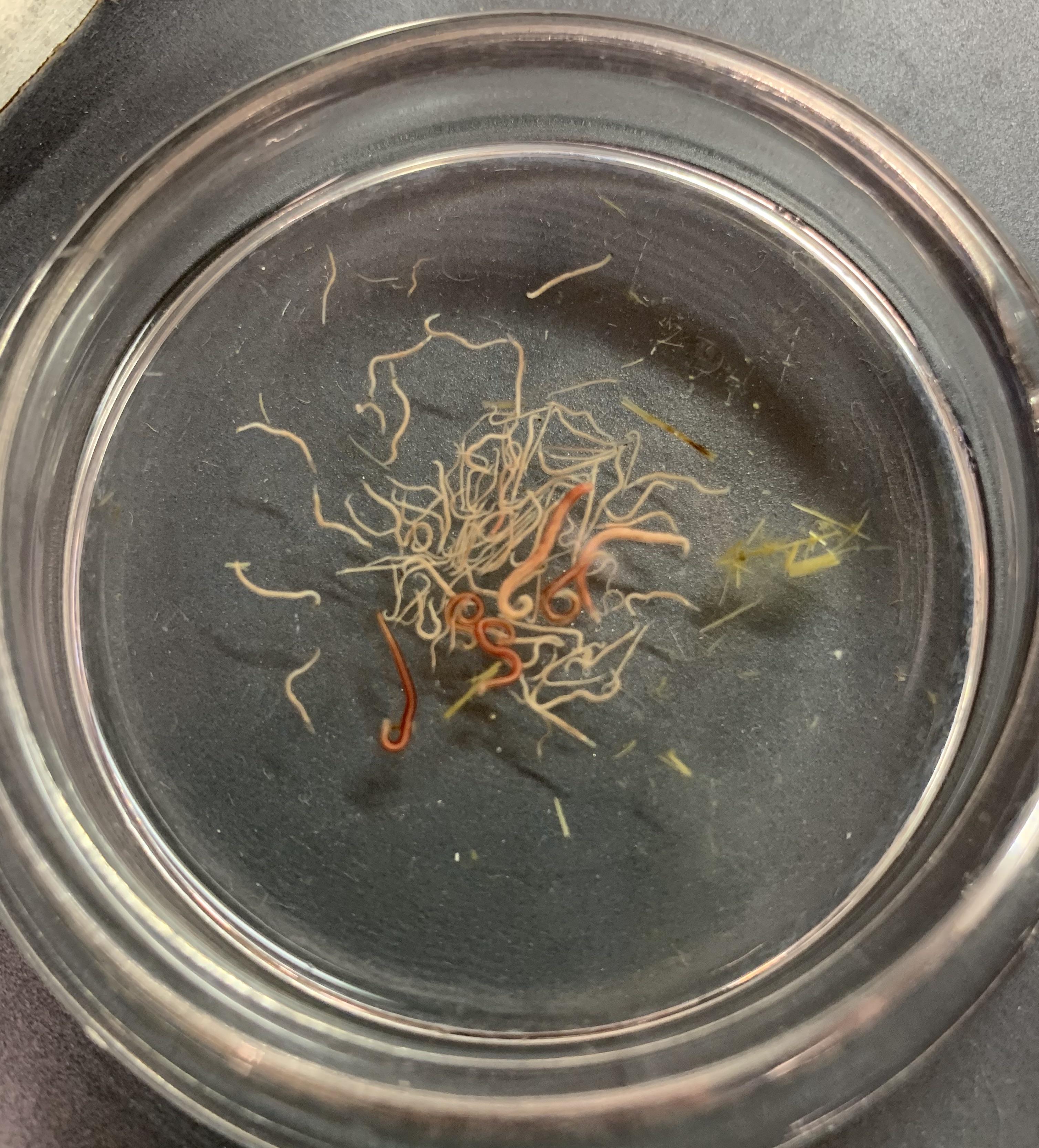Ivermectin and Moxidectin Resistance Discovered in North America

There are three dewormer drug classes available for horses, and on the majority of farms across the world, cyathostomin (small strongyle) parasites have developed resistance to two of these. That has left us with one drug class, the macrocyclic lactones (moxidectin and ivermectin). Despite heavy use for the past several decades, these drugs have maintained good efficacy against cyathostomins, and very few reports have documented signs of resistance to this class. However, we consistently find that strongyle egg counts come back quicker following deworming with moxidectin and ivermectin and have been recommending horse farms routinely monitor dewormer efficacy.
In a recent study, we report routine parasite and treatment efficacy surveillance data from a Thoroughbred farm in Central Kentucky. This farm has diligently followed current guidelines for equine parasite control and has implemented systematic surveillance of parasite fecal egg counts from all horses present. Here are the main findings:
- The study population consisted of more than 50 yearlings born on the farm in Kentucky, and another approximately 50 yearlings born in Ireland and imported in October 2019.
- It was found that efficacy of ivermectin and moxidectin was markedly reduced in the Irish imports, whereas the U.S.-born yearlings demonstrated 100% strongyle egg count reduction.
- These findings were confirmed through re-treating and re-testing over an eight-month period. In this case, resistance to ivermectin and moxidectin was imported with the Irish imports.
- The resistance was only discovered due to the meticulous testing protocol in place on this farm, and it allowed the farm manager and staff to take appropriate steps to contain and manage the situation.
- Ivermectin and moxidectin resistant cyathostomin parasites are likely present in multiple places around the world, and proper treatment efficacy testing is strongly encouraged.
Martin Nielsen, DVM, PhD, Dipl. ACVM, Schlaikjer professor of Equine Infectious Disease, associate professor in the University of Kentucky Department of Veterinary Science at the Gluck Equine Research Center, provided this information.
